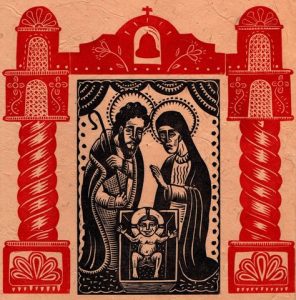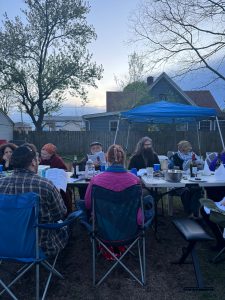Have you ever wondered why Notre Dame’s administration flaunts its commitment to a “living wage” yet has continually denied its workers the right to unionize?
Does it baffle you how our University claims to “affirm the transcendent dignity and worth of every human person” while still maintaining housing policies that unjustly discriminate against the LGBTQ community?
Are you angry Notre Dame leadership recycles the same picture of Fr. Hesburgh and MLK every time it wants to recognize Black lives, but continuously fails to affirm that Black Lives Matter on our campus?
These issues are not aberrations from an otherwise benevolent institution. The University that is failing to pay a living wage to its employees during the midst of an international pandemic is the same one that has always displayed consistent anti-labor practices, be it replacing thirty five unionized tradesmen with contractors in 1969 or nearly firing thirty five groundskeepers in 1977 for daring to campaign for a union. The University that retains outdated, sexist codes such as parietals is the same one which denied official status to an LGBTQ+ organization for over forty years. And the University which, like clockwork, can only trot out the same image of Fr. Hesburgh and MLK with tepid statements calling for a “healing of divisions”upon the murder of Black people by armed policemen is the same one which, year after year, have neglected to address the racism black students face on campus.
But where there is injustice, there will always be resistance. We are inspired by South Bend’s local chapters of the Sunrise Movement and Black Lives Matter, as well as actions on campus such as the #NDagainstACB protest or the Strike for Black Lives. To everyone involved, those events seem singular and awe inspiring — as they rightly should. Far too rarely at Notre Dame is there such an outpouring of support for emancipatory change, with the demonstration being living, breathing, chanting evidence showing us we were not alone in the struggle for a better world.
This struggle is deeply inspired by Catholic Social Teaching: following in the footsteps of Dorothy Day and Gustavo Gutiérrez, we look towards the principles of solidarity, the preferential option for the poor and oppressed, and care for creation as our guiding principles. We agree with Pope Emeritus Benedict XVI who said, “Democratic Socialism was and is close to Catholic social doctrine and has, in any case, made a remarkable contribution to the formation of a social consciousness.”
While the nature of campus activism focuses more on the immediate struggle, from a broader perspective, Solidarity is also carrying out the untold history of radical student groups at Notre Dame. We are the latest in a proud tradition that has always recognized capitalism and the unjust hierarchies it produces as fatal to human flourishing and the common good. And more than recognize, we have acted; be it protesting the recruitment of Dow Chemical and CIA during the height of the Vietnam War, publicizing the role of sweatshops in producing University merchandise or working to divest Notre Dame from the South African apartheid government.
However, as the first explicitly socialist student organization in the history of Notre Dame, Solidarity also represents something new. This reflects both the rising socialist consciousness on campus and across the nation, being the inseparable corollary to capitalism’s tendency to generate ever more unresolvable disasters. Recalling the student movements of the sixties, we are not, as in the words of SDS, merely “looking uncomfortably to the world we inherit.” That world is now pressed a quarter inch from our eyes as we stare transfixed at the interrelated crises of the pandemic, climate change, white supremacy, imperialism, patriarchy and economic inequality. But should we shift our gaze a little beyond, we will also see the faint outlines of another world, one animated by the values of liberation, justice and democracy. Neither outcome is an inevitability; history is not dictated from above, it moves through the conscious choices of billions of people. That choice, as it has always been, is between socialism and barbarism. We hope you join us in choosing the former.
Our first general meeting will be on April 17th at 2pm on Zoom. The signup form can be found at bit.ly/snd1gm. Find out more information on our Twitter @solidarity_nd.
In Solidarity,
Tianle Zhang
freshman
Maddie Foley
senior
Duncan Donahue
junior
Mar. 27, 2021



